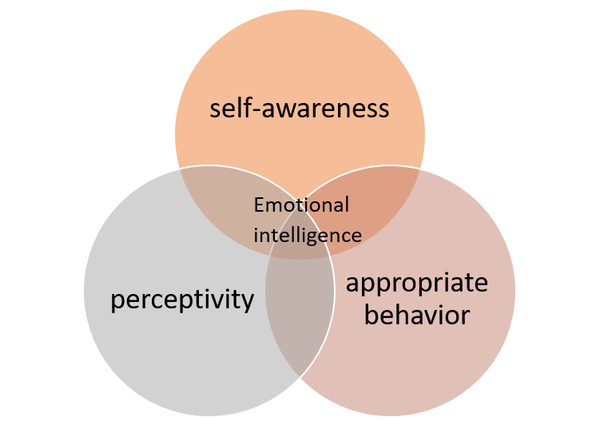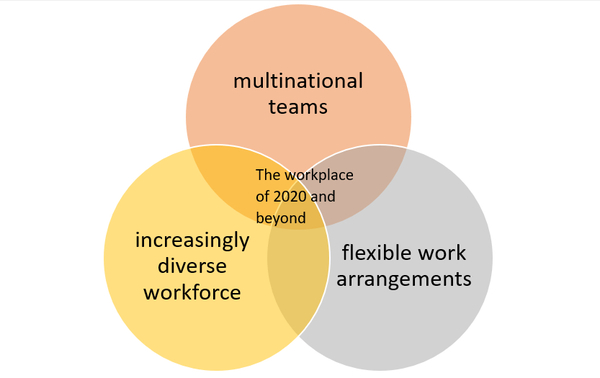THE WORLD’S #1 EXECUTIVE COACHING AND BUSINESS COACHING BLOG SINCE 2017.
Leadership Development and Leadership Coaching: 2020 and Beyond
August 26, 2019 | Category: Blog, Intelligent Leadership | Last updated on: July 2, 2023
In considering the workplace of 2020 and beyond, it’s easy to focus on technology.

Technology is only part of what is changing leadership development needs.
The fact is, we can do things we couldn’t do before, and there will be things we can do in 2020 and in out-years that we can’t do now. There’s no question that technology has transformed work and non-work life in profound ways.
Additionally, there have been plenty of headlines about automation eliminating jobs, and the idea can be profoundly disconcerting to the average employee. Yet there’s a flip side: with automation taking care of mundane tasks, could people be empowered to do more creative, innovative things?
But almost as a counterweight to all the technology has emerged an emphasis on the most human of human qualities, particularly emotional intelligence. The corporation run by the “invisible and omnipotent” leader is already an anachronism, and the workplace of the next decade will by necessity be run by leaders with outstanding “people skills” and emotional intelligence.
It’s not just a feel-good proposition, either. The employee workforce is evolving too. We no longer live in a world where identically dressed, married white men trek to identical offices every day to be led by a slightly older man just like them. Talent comes in the widest possible variety of people, and the companies that recognize, embrace, and understand this are the ones that succeed. There’s no reason to believe that will change after 2020. Here’s more of what leadership will mean as we enter the 2020s.
Fundamentals of Good Leadership Won’t Change
Honesty, transparency, and accountability will forever be qualities expected of outstanding leaders. They’re considered non-negotiable because they can so fundamentally and extensively affect not only the success of the company but also the employee experience.
Employees are more aware and informed than ever, and most of them simply won’t associate with companies and leaders who are dishonest, who hide what’s really going on, and who aren’t held accountable for their actions.
Leadership development programs must emphasize the most fundamental qualities of outstanding leaders because without them, all the skill development in the world can be meaningless. What is the value of a leader who trumpets impressive numbers every quarter if those numbers are fudged, or are based on shaky assumptions?
Likewise, how meaningful is a successful product line if the CEO is caught in a scandal, or is repeatedly let off the hook for unethical behavior? Hiding indiscretions and unethical behavior is harder than ever in our connected world, and as important as honesty, transparency, and accountability have always been, they will be even more important moving forward.
Leadership development programs and leadership coaching both must always circle back to these qualities because other leadership skills built on an honest, forthcoming foundation are more effective and get greater results over the long term.
Emotional Intelligence Will Become More Important
A large proportion of success in leadership is attributed to emotional intelligence (sometimes referred to as EQ – emotional quotient). This doesn’t mean that traditional intelligence matters less. But it does indicate that skills and intelligence cannot do great things if they are wielded by someone who has no self-awareness, or who doesn’t know how to relate to people.
Emotional intelligence isn’t as easy to measure as standard intelligence, but it is every bit as important to those in leadership positions.
Emotional intelligence depends on abilities like:
- Identifying and understanding emotions
- Being able to understand how others feel (empathy)
- Controlling one’s own emotions
- Being able to “read a room” or accurately perceive others’ emotions
- Using emotion not to manipulate, but to facilitate communication
And it’s not just an obscure topic for academic journals, either. In fact, you can now buy toys for children that purportedly help them develop emotional intelligence. Whereas IQ used to be seen as the main determinant of success, experts now realize that high intelligence alone does not guarantee success.
Companies have discovered for themselves that, for example, sales agents with lower emotional intelligence make fewer and smaller sales than those with strong emotional intelligence. The bottom line is that people want to deal with people they trust and like. It only makes sense that people will go the extra mile for leaders they perceive as empathetic and compassionate. You’ve probably heard the cliché, “People don’t quit jobs, they quit managers.” It’s a cliché for a reason.
Innovation, Technology, and Leadership
Leadership, innovation, and technology are already intertwined to some degree, but there’s no room in future leadership for the frozen-in-time leader who refuses to acknowledge or use technology. Not only does using technology help people do their jobs better (from the mailroom to the board room), embracing technology makes it easier to embrace innovation. And innovation is no longer optional, even in the most traditional businesses.
Innovating processes, products, and business models has become so important that many companies have established fully-fledged Innovation Departments. These are not your traditional R&D departments that are sometimes walled off from everyone else. Innovation departments are about crossing departmental boundaries, tearing down silos of knowledge, and even reaching outside of corporate walls to work with partner companies, universities, and sometimes even the general public.
Two things the internet age has made clear is that there is no shortage of great ideas in our world and that these ideas may come from anywhere. Innovation requires more than just generating ideas. It requires evaluating, prioritizing, and developing those ideas to where the best ones are made into reality.
Innovation requires acceptance of both risk and failure, and that can be difficult for many leaders. Leadership development programs and leadership coaching in 2020 demands that leaders understand acceptable risk, and what it means (and doesn’t mean) to accept failure. A certain amount of failure is part of any innovation initiative, and allowing for acceptable failures and learning from them is going to be a more prominent expectation of leadership.
We can’t just snap our fingers and bring innovation to life. We have to dedicate time, resources, and the right attitude to get results.
Preparing for Jobs That Don’t Exist Yet
If you’re a Baby Boomer or a member of Generation X, the idea of, say, blogging being a profession didn’t occur to you when you were coming of age. One of the most wonderful and fascinating aspects of the future is that there will be jobs 20 years from now that we can’t even envision at this point. While it’s difficult to generate clear predictions, there’s general agreement that a significant proportion of the jobs that today’s children will have don’t yet exist.
How can leaders possibly prepare for such a future? One thing they must do is learn to rethink what fundamental skills are. In generations past, people went to college to train for a career that they would likely stay in until retirement. Today, however, a fluid and evolving skillset is becoming more mainstream.
Blending experiential and academic learning is becoming more mainstream as well, and this is affecting corporate training programs. While businesses can’t teach skills we don’t yet know of, they can adopt a culture of lifelong learning and invest in high-quality training for their employees.
Mostly, however, leaders have to learn to think differently. Employees who learn skills directly related to their work as well as “adjacent” skills add more value to the company. Leaders who support interdisciplinary learning not only end up with more well-rounded, flexible employees, they indirectly support innovation and collaboration – two practices that are gaining importance in the business world.
Generation Z and the Multigenerational Workforce
An astounding five generations are represented in today’s corporate world:
- Traditionalists – born before 1945
- Baby Boomers – born from 1946 to 1964
- Generation X – born from 1965 to 1980
- Millennials (Generation Y) – born from 1981 to 1996
- Generation Z – born since 1997
Over the past 20 years, we’ve gone from mostly a three-generation workforce to a five-generation workforce, and that is a big change for many leaders. Some of the challenges are smaller and quickly resolved (like having texts returned much faster than phone calls by Millennial employees). Others are larger and more challenging.
Every generation has its own characteristics (though there are always exceptions to the rule). Traditionalists tend to be more cautious and formal, while Boomers are self-focused and competitive. Gen X workers tend to be independent and a tad skeptical, while Millennials are more group-oriented and tech-dependent. Generation Z is remarkably diverse and technologically advanced. Imagine running a meeting with representatives from all these generations!
Leaders have no choice but to understand generational differences. Embracing these differences, and the qualities that each generation brings to the workplace is far more productive than insisting, for example, that your Millennials use phone calls rather than instant messaging. Leaders must at the same time, avoid making assumptions: there are tech-savvy Traditionalists as well as Gen Z employees who are happy to meet in person rather than via FaceTime.
And leaders must be clear on what their expectations are. This is especially essential in situations where older employees work for younger bosses. Clear communication, asking questions, and really listening to answers can stave off many misunderstandings and keep work moving forward.
The Workplace and Workday of the Future
Compare today’s workplace with that of your parents. The differences are striking, and require new ways of thinking.
Jobs don’t always mesh well with five eight-hour days in a row. And not every business fares best with a setup featuring endless rows of identical cubicles. Moreover, many more professional duties can be completed off-site, and telecommuting has become a part of many jobs.
Sometimes, keeping employees engaged with their work requires giving them flexibility in how they accomplish it. Working from home or working four 10-hour days per week may make sense for some employees, while others may do just fine with eight hours per day, Monday through Friday.
Studies strongly indicate that businesses that offer some form of flexible work arrangement demonstrate higher levels of employee work satisfaction. Additionally, employees say that with flexible working arrangements, they are more productive. A Zenefits survey found that employees value flexibility as much as they do benefits and pay.
Will there be people who take advantage of flexible work arrangements? Of course. But they make up a comparable proportion to those who find ways to take advantage in traditional work arrangements. The key to solving the problem in these occasional instances is the same: address the issue quickly and unequivocally.
One tremendously important aspect of flexibility in the workplace of the future (that is already being borne out) is that the vast majority of people with flexible work arrangements say the flexibility has a positive effect on work-life balance. This fact alone can play a major role in companies attracting and retaining the highest quality employees.
Social Responsibility and Leadership
People care more about corporate social responsibility than they used to. They’re more skeptical of companies whose place in the community begins and ends with “providing jobs.” Seventy percent of Americans believe that companies should stand up for important social issues, and they reward companies that do so. In other words, corporate social responsibility is simply good business.
But corporate social responsibility can be a fine line to tread, too. Most of the public believes that businesses should take an active role in driving positive social and environmental change. At the same time, however, companies that are too loud with their public advocacy or rhetoric can turn people off. Leaders must learn how to engage in dialogue on important issues without inflaming passions. It’s not easy!
Leadership also has a role to play in ensuring adequate training throughout the workforce. Combating sexual harassment, promoting sustainability, and ensuring everyone behaves ethically will require training. And not just once, but regularly. In fact, some executive education courses specifically emphasize corporate social responsibility and sustainability. Leadership development programs cannot shy away from such issues.
Modern leadership development programs must include training on corporate social responsibility and sustainability.
Conclusion
Leadership development and leadership coaching will look different in 2020 and beyond. In most cases, the demands are greater, rather than lesser, because the workforce and the workplace are both evolving rapidly.
In a world where remote work, multinational work teams, and a multigenerational workforce are all standard (or becoming that way), employees simply won’t accept leadership practices that are solely based on “how we’ve always done it.” What’s more, consumers won’t support companies that are firmly stuck in the past.
The leader of tomorrow must not only have an impressive skill set, but also strong emotional intelligence, appreciation for technology, the ability to manage a more diverse workforce than ever, and commitment to social and environmental responsibility. Which means that high-quality leadership development programs are more important than ever to long-term corporate success.
Leadership coaching will also play a role, helping new leaders develop and put their talents to use, and helping established leaders develop the agility they will need to lead companies with a lot of moving parts. Not only are employees and expectations changing, but products, processes, and business models are also too, as competitors continually strive to innovate so they can fulfill their missions better and more efficiently. Leaders developing new communication and technology skills won’t be optional in such a world.
One thing will never change, however, and that is the importance of the most fundamental of leadership skills. Honesty is more important than ever in a world where wrongdoing can go from being a secret to being all over social media at the speed of light. Transparency is more important because employees and consumers want to know what goes on behind the scenes. Accountability is mandatory because neither employees nor consumers put up with leadership that gets away with wrongdoing without consequence.
Glossary of Terms
Accountability – willingness to accept responsibility for one’s actions and be forthright about mistakes
Corporate social responsibility – a company’s sense of obligation to and responsibility for its community and it’s social and environmental well-being
Emotional intelligence – the ability to be aware of, manage, and express one’s emotions and handle interpersonal relationships with empathy and judiciousness
Flexible work arrangements – work arrangements that allow options such as working from home or working non-standard schedules
Innovation – development of ideas for new tangible products or for new ways of doing things that solve problems and add value
Leadership coaching – a one-on-one business partnership that helps leaders build their capability for achieving both short- and long-term goals
Leadership development program – training programs that cover leadership qualities like communication, motivating others, resolving conflicts and delegating effectively
Transparency – honesty and candor, or acting in such a way that others can see what is really going on






